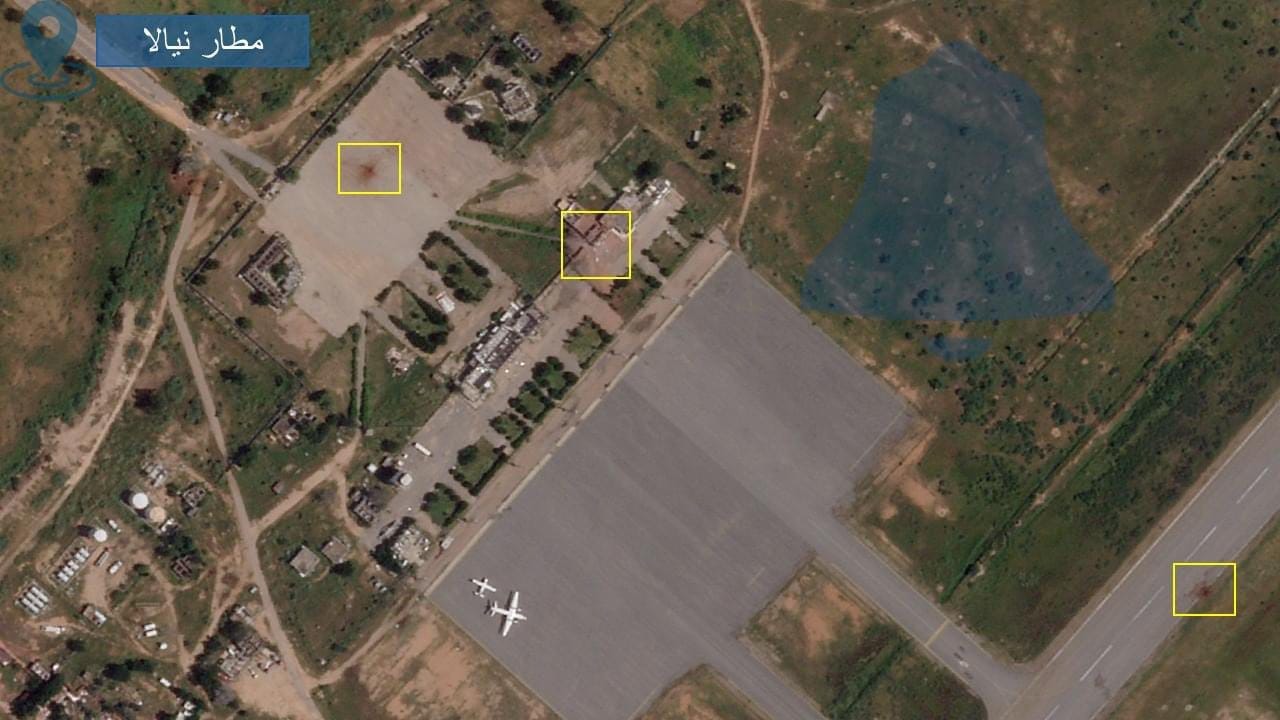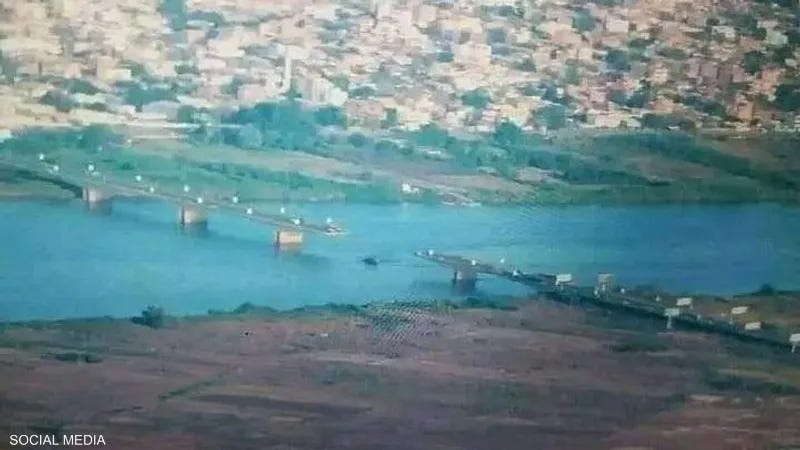Nyala airport destroyed in airstrike
Attack comes after reports of RSF use of facility
The Sudanese Armed Forces (SAF) has bombed Nyala International Airport, a vital infrastructure for civilian and government activities before the outbreak of the ongoing conflict. The bombing has caused significant damage to the airport facilities.
The SAF, which has no physical presence in the South Darfur capital, has not publicly admitted responsibility for the bombing. However, the attack comes just two days after reports of an unknown plane landing to deliver military supplies to the Rapid Support Forces (RSF) who control the city.
A number of local news publications reported over the weekend that a Russian-built Ilyushin IL-76 cargo plane landed at Nyala airport and remained on the ground for about an hour and 15 minutes before departing.
Pro-SAF activists celebrated the destruction of the airport's main terminal and VIP halls, sharing photos of the ruins online. The destruction of the airport could moderately hinder the RSF's ability to receive supplies and reinforcements as the paramilitary group vie to capture El Fasher.
However, the airport was not in use since April 2023, apart from the mystery aircraft that landed Saturday. Most of Darfur is under control of the RSF and airports throughout the region are closed, though there have been discussions of reopening them to humanitarian traffic.
The RSF did not confirm or deny the alleged plane but condemned the SAF bombardment of the airport as a “heinous crime” aimed at destroying crucial infrastructure that would result in the disruption of humanitarian efforts. The RSF, in a statement posted on X, formerly Twitter, said:
“Early this morning, under the direct orders of Abdel Fattah al Burhan and the leadership of the Islamic Movement, SAF warplanes bombed Nyala airport in South Darfur. This deliberate and calculated attack is a clear attempt to hinder the implementation of crucial agreements and to undermine the progress made during the Geneva talks,” the group said.
The RSF was referring to an agreement that it announced in August with a section of the international community. This agreement, which aimed to reopen and operate airports in RSF-controlled cities of Nyala, Zalingei, El Da’ein, and El Geneina, was to be operated by the United Nations to facilitate the delivery of humanitarian aid to those in need.
This was according to Brigadier General Omar Hamdan, head of the RSF delegation to the U.S.-led Geneva ceasefire talks led by the United States of America, which were not attended by the SAF.
The RSF claimed in their statement following the destruction of the airport that the SAF activity was intended to obstruct the delivery of essential humanitarian aid to the people through the operation of the airport.
“During these discussions, the Rapid Support Forces proposed, in coordination with international partners, that Nyala, El Geneina, Zalingei and El Da'ein airports be reopened and operated under the auspices of the UN and its agencies. These airports were meant to serve as essential lifelines, facilitating the delivery of much-needed humanitarian aid, including medicine and emergency relief supplies.
“We call on the United Nations and the UN Security Council to immediately and unequivocally denounce these indiscriminate bombings, especially in areas where military clashes are not taking place. The RSF has collected documented evidence of civilian casualties resulting from these reckless and arbitrary air strikes and stands ready to present this data to the international community. Our commitment remains strong. The RSF will continue its mission to dismantle the military regime led by these rogue generals. We will take all necessary legal action against the leaders of the terrorist Islamic Movement, who have orchestrated and perpetuated this devastating conflict with the support of their affiliates within the SAF and allied foreign mercenary groups,” the statement concluded.
Targeting of critical infrastructure
The ongoing conflict between the SAF and the RSF has seen both sides targeting critical infrastructure essential for both civilian and military operations. This strategy aims to disrupt the other party's capabilities and hinder their ability to conduct offensive operations.
One of the most significant targets has been bridges connecting different parts of the capital, Khartoum. These structures play a crucial role in transportation and logistics. The destruction of bridges, such as the Halfaya Bridge in July, and the Shambat Bridge last November has limited the movement of troops and supplies between Bahri and Omdurman, two major cities in the Khartoum metropolitan area.
Additionally, the Jebel Aulia Dam Bridge, part of a one-lane road crossing the Jebel Aulia Dam, was destroyed in November last year, just days after the bombing of the Shambat Bridge. The attack occurred as the RSF was on the offensive to capture the Jebel Aulia military base, located in southern Khartoum.
While both sides blamed each other for the destruction of the dam bridge, the incident complicated the RSF's efforts to regain access across the Nile. The destruction of the Shambat Bridge a week earlier had effectively cut off their forces in southern Omdurman from those in Khartoum and Bahri.
Like most of the infrastructure in the war-gutted capital, Khartoum's airport was destroyed during fighting between the two sides in the early hours of the conflict. An unconfirmed but large number of civilian planes were destroyed, and all airport halls were razed to the ground.
Similar to Khartoum Airport, Merowe airport was also damaged during the first days of the war when the RSF attacked the airbase, which was also hosting Egyptian soldiers for training. However, Merowe airport has since been renovated due to its strategic importance.
More photos of destroyed Nyala airport
Support our journalism
Thank you for reading Sudan War Monitor. We do this work because we believe that journalism is one accountability mechanism that ultimately can contribute toward peace and justice in Sudan—however distant that hope may be. Our work is intended to be a resource for humanitarians, civil society, ordinary Sudanese, diplomats, and news media. Subscribe or share to support our work and #KeepEyesonSudan.








